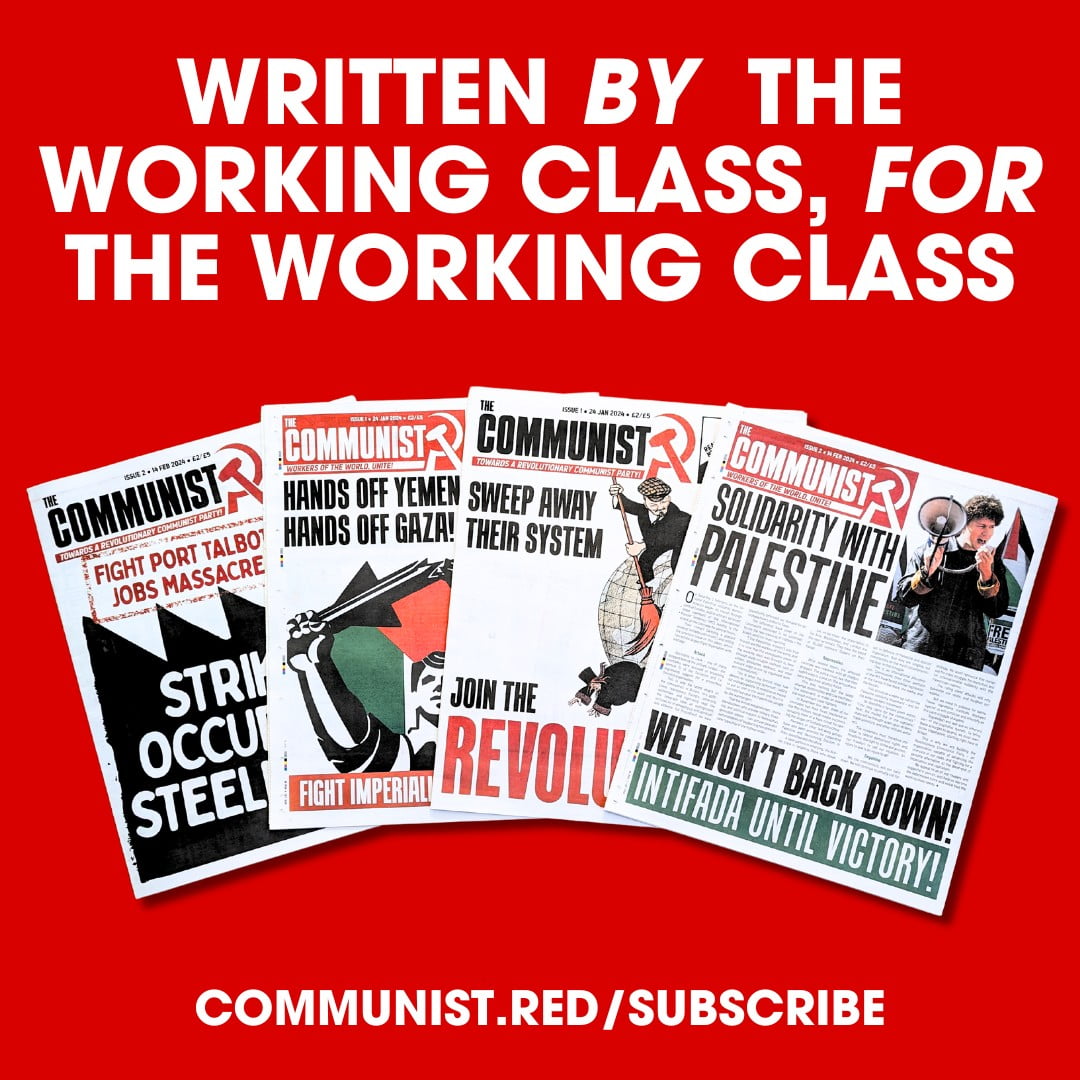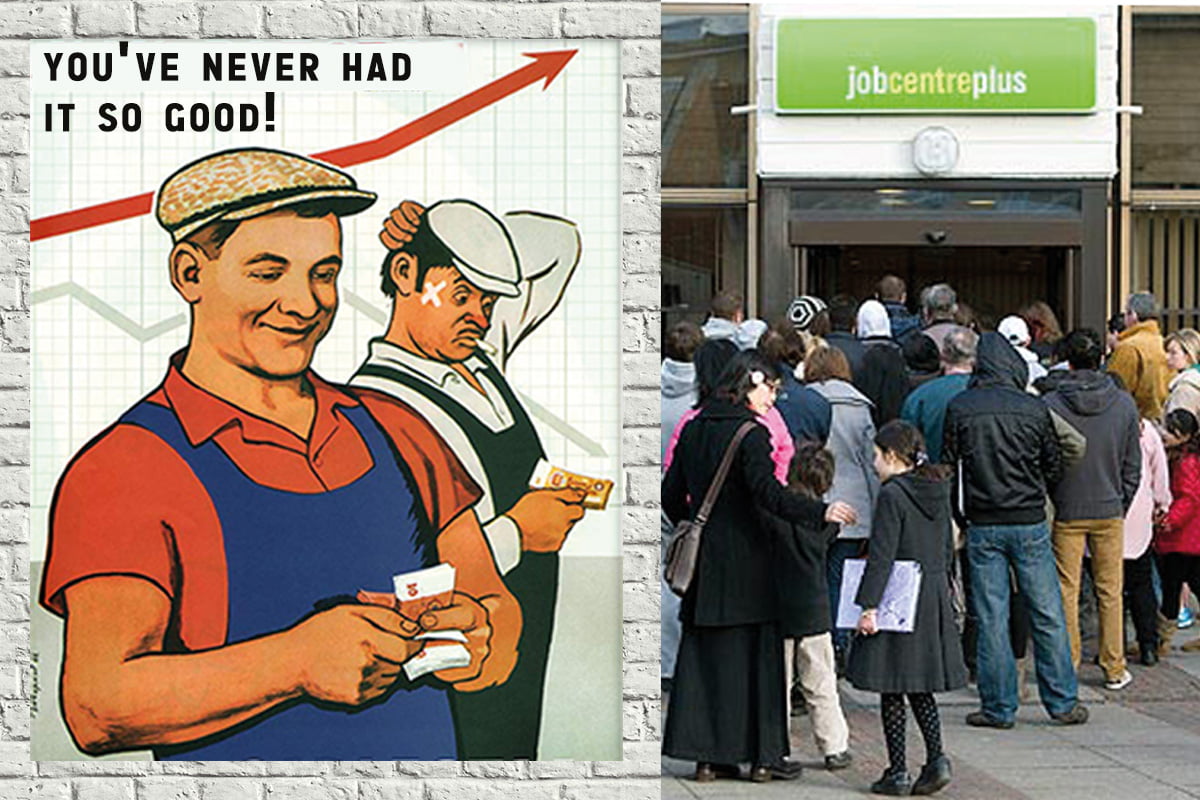On Wednesday March 6, President Bush imposed tariffs as high as 30% on most steel imports coming to the US from Asia and Europe. European steel makers stand to lose 2.6% of sales. The UK producer Corus has the most exposure to the US, with exports to that market accounting for 5% of sales. Belgium’s Arcelor had 3% of sales there and Germany’s Thyssen-Krupp 1%. China, one of the world’s largest steel-making nations, was not expected to suffer a big hit from the increase because the US was not a large market for its steel exports.
In periods of capitalist economic downturn, national interests predominate over international. "When the US is caught between domestic pressure and respecting its international commitments, the former prevails," correctly said Pascal Lamy, EU trade commissioner.
Lamy went onto to bleat: "The world steel market is not the wild west, where people do as they like. There are rules to guarantee the multilateral system." Oh yes? International rules only apply when the world’s greatest capitalist power does not think they threaten its interests. When they do, rules are thrown out of the window.
The Wall Street Journal called the tariff "perhaps the most dramatically protectionist step of any president in decades." Here is a Republican "free trade" president doing what "protectionist" Democrat president Clinton twice refused to do when it was demanded by steel-worker unions and companies.
What this shows is that when the US economy is doing well, free trade rules. When it is not, protectionism rears its ugly head. With capitalism in a downturn, protectionism always returns. Voting blocs, whether corporate, union or regional, demand import tariffs and bans, and politicians provide them in order to get re-elected.
The US buys nearly $1.5bn more of goods and services from foreigners than it sells to them. The resulting trade gap is filled when the foreigners return their money to the US in exchange for stocks, bonds and other capital assets. This arrangement has been heaven for Wall Street (selling US dollar investments to foreigners) but it has been hell for US manufacturers. The strong dollar makes it very hard for them to compete on world markets. That is why the US manufacturing sector fell for 19 months straight even as US consumers continued to buy from overseas manufacturers. It’s why US corporate profits recently experienced their sharpest drop ever recorded. And it’s part of the reason why companies like General Motors have one million units of excess capacity.
The EU and Asian steel producers are screaming "unfair". They will demand that the international trade body, the World Trade Organisation, rule in their favour. But a WTO dispute panel could take more than a year to reach a decision and after that compensation will take months to come into effect. The US has already appealed against five other WTO rulings made against it in the past few years and the EU has gained no compensation so far.
The US tried to justify its actions arguing that it was "necessary to respond to unfairly traded steel that has devastated our industry." Robert Zoellick, US trade representative, accused the EU of handing out as much as $50bn in government support to its steel industry over the past 50 years. That will be its line at any WTO dispute hearing.
Apart from going to the WTO, the EU could retaliate by imposing punitive sanctions on US exports, a measure Brussels could apply late next month as a result of a separate ruling over a US corporate tax law with which the US has still to comply. That would be the start of a wider trade war.
There is a great parallel with the notorious US Smoot-Hawley tariff of 1930 and its role in the Great Depression. The Smoot-Hawley tariff measures set off a round of retaliations from other nations and collapsed the level of world trade to a fraction of what it had been in the late 1920s.
It’s early days yet, but the steel war could be the start of the slippery slope down towards a full-scale trade war and the end of "globalisation". There are three factors that have driven global capitalist growth over the last decade: high company profitability, low interest rates and strong world trade growth/globalisation of capital flows.
Since 1997, global profitability has fallen sharply and even the mass of profits has fallen in the US. World trade slowed sharply last year, while global capital flows have shrunk after the crises in Mexico (1995), Asia (1997) and Argentina (2001). That leaves only low interest rates as the third leg of capitalist economic growth.
Of course, capitalist commentators are confident that profits will recover this year and have predicted a recovery in world trade too, while interest rates stay low. The steel war adds another question mark against that optimism.






